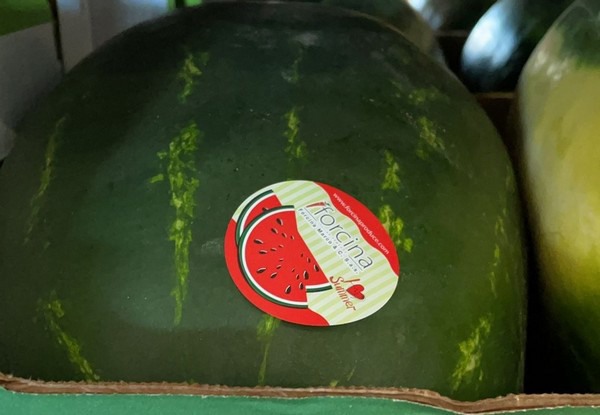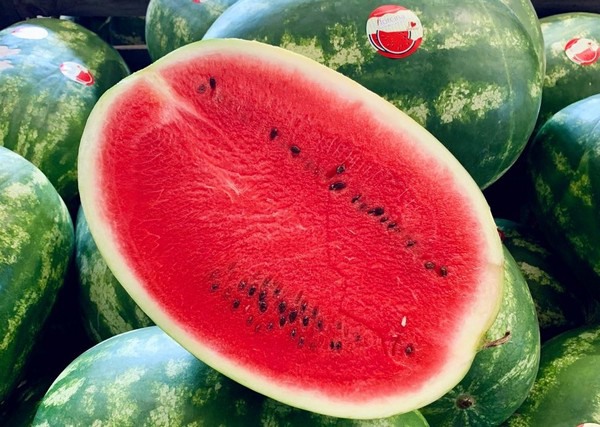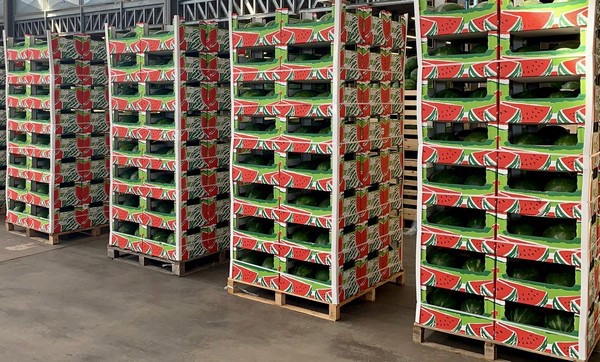There is no mention of high sales for the Italian watermelon market, but the current situation is not as disastrous as the Spanish one (see FreshPlaza of 06/03/2021).
"Prices have decreased compared to the beginning of the campaign, with €0.40/kg for a first category product, €0.30/kg for the second category, packaging included. The month of June, which was supposed to be crucial for sales, has so far disappointed expectations, however, we cannot but be cautiously optimistic," said Gianpaolo Forcina, marketing manager at Forcina Marco & C./Forcina Italian Produce in Fondi (LT).

"There are some factors to evaluate. Our watermelon campaign, mainly originating in the south of Pontine, in the province of Latina, started about a month late for climatic reasons. However, there was an advantage, namely the fact that in the same period the anti Covid-19 restrictions in the Horeca sector were reduced. Conversely, Spain, which had an earlier campaign than Italy, was the first country, together with Greece, to enter the Italian market in April. Despite a 30-day delay, overseas products were strongly impacted once the volumes of Italian domestic products arrived on the market."
According to Forcina, the foreign crops are scarce at the moment or at least not gaining enough commercial power on the Italian market. "Italian watermelons kicked off with a bang. Quantities were considerable and prices were initially high. However, at the beginning of June, within two weeks, quotations stabilized around €0.40 - €0.45 per kilo. We are talking about 90% of the long striped Dumara watermelon, the most sought-after on the national market, which has been very successful in the large-scale retail trade and in a number of platforms in the seaside areas on the Adriatic coast and on the islands (Sicily and Sardinia)."

This year, the Forcina company was able to position even better the two-piece cardboard-packed product. "This is an added value to the final service, especially with regard to the large-scale retail trade, where we usually use polymer packaging," added Gianpaolo Forcina.
"We are reaping the benefits of our research on new packaging materials carried out over the last few years. We are seeing a strong demand for recycled materials, r-Pet, even though watermelons are more likely to be packaged in cardboard, which is considered easier to dispose of and has a lower environmental impact.
The sustainable path started by the company started as early as 2018, but unfortunately it has had to clash with the skepticism of suppliers and consumers. "Thankfully, though, even after years, we have successfully achieved new milestones."

"We are able to guarantee maximum quality and the required volumes at least until September. This is made possible by a series of studies and analyses carried out with suppliers. This effort has allowed us to reach the markets of London, in the United Kingdom, and Ireland. We are also in the process of establishing collaborations with France. These countries are looking for 8 to 12 kg watermelons. We started supplying in Eastern Europe, primarily Poland, a few weeks ago. There is a lot demand for 4 to 8 kg watermelons. Prices differ by type of watermelon and by market," said the manager.
When you mention the United Kingdom, you can't help but think of Brexit and its impact on the markets. "It represents the biggest obstacle in selling and discourages exports to that nation. Personally, I consider their restrictions too strict. For example, if you use wooden bins, you have to use a particular treated wood that is difficult to find and costs more. Moreover, there are customs duties that I consider nonsense and that are to the detriment of about 70% of the exports that we would have carried out pre-Brexit," concluded Forcina.
For more information: forcinaproduce.com
